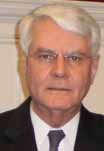Words from the Sand: A Lexical Analysis of Early Greek Papyri from Egypt
Funded by the Australian Research Council 2010-14.
The discovery of the ancient Greek papyri from Egypt has opened a remarkable window on our deep human past. Every scrap of papyrus extracted from the Egyptian sand has the potential to change the way we think about some aspect of ancient culture. Yet there is a fundamental problem affecting all research into this material: our incomplete and unsatisfactory understanding of the vocabulary of these fragile textual artefacts renders a vast amount of evidence uncertain and its significance therefore ambiguous.
The 'Words from the Sand' project addresses that problem. By applying innovative methodologies we aim to produce a state of the art lexical analysis of early Greek papyri, offering a key contribution to the larger study of the ancient Greek language and lexicon.
Overview
The discovery of the ancient Greek papyri from Egypt has opened, beyond all expectation, a remarkable window on our deep human past. These fragile textual artefacts recovered from the rubbish tips and mummy-wrappings of antiquity offer unique evidence for life in Egypt over a millennium, from Alexander the Great's occupation down into the time of Arab rule. Their excavation and interpretation is one of the great, continuing stories of Mediterranean archaeology. The discoveries of the last hundred years are only gradually becoming available for advanced analysis. New finds are still coming to light. New technologies are revolutionizing our understanding of earlier-published materials. And every scrap of papyrus extracted from the Egyptian sand has the potential to change the way we think about some aspect of ancient culture.
From a linguistic perspective the papyri provide vital new evidence illuminating the history of the Greek language in the post-classical period (300bc-ad600). Effective exploitation of that evidence is an urgent desideratum. At the very heart of the issue, accurate interpretation of the meanings of words is of fundamental importance for all spheres of research, and the vocabulary of the papyri has overarching significance for the Greek vocabulary as a whole. These texts constantly reveal new words never before encountered, and also entirely new senses of previously known words. Yet no satisfactory lexical analysis of any of this material is so far available. Early treatments are now severely dated, and many mistakes lurk in the standard works on which contemporary scholars are forced to rely.
This project aims to provide a major advance. Many thousands of papyri are now known. We shall focus on a key corpus of the very earliest documents, the massive Zenon Archive from the third century bc. The content of this archive is richly varied and informs, among many other things, the current international debates on multilingualism, literacy, and the processes of acculturation in the ancient world. Its approximately 4,600 vocabulary items offer important insights into the general Greek vocabulary at the beginning of the post-classical period.
Our project has four central aims:
1. To produce a state of the art lexical analysis of early Greek papyri from Egypt, applying innovative methodologies and technologies;
2. To provide a powerful new tool for all types of research specifically on the papyri and generally on ancient cultures in Graeco-Roman Egypt;
3. To provide a key contribution to the larger study of the Greek vocabulary in the post-classical period, complementing curretn work on other phases in the history of the language and on contemporary corpora (e.g. important segments of the Septuagint).
4. To contribute toward identifying the dynamics of lexical usage in different speech communities within multicultural societies, both ancient and modern.
![]()
Zenon Papyrus
Select Publications relevant to the project
Aitken, J. K., The Semantics of Blessing and Cursing in Ancient Hebrew (Leuven: Peeters Press, 2007).
--, 'Phonological Phenomena in Greek Papyri and Inscriptions and their Significance for the Septuagint', in J. Corley, and V. Skemp (eds.), Studies in the Greek Bible. Essays in Honor of Francis T. Gignac (Washington,
DC: The Catholic Biblical Association of America, 2008), 256-77.
--, 'Other Hebrew Lexicons: Zorell and Alonso Schoekel', in J. Dyk, W. van Peursen, B. Turner, T. Falla, and R. de Blois (eds.), Foundations for Syriac Lexicography III (Gorgias Press, forthcoming 2009).
--,
'Context of Situation in Biblical Lexica', in J. Dyk, W. van Peursen, B. Turner, T. Falla, and R. de Blois (eds.), Foundations for Syriac Lexicography III (Perspectives on Syriac Linguistics, 4; Gorgias Press, forthcoming 2009).
Evans, T. V., Verbal Syntax in the Greek Pentateuch: Natural Greek Usage and Hebrew Interference (Oxford:
Oxford University Press, 2001).
--, 'Identifying the Language of the Individual in the Zenon Archive', in T. V. Evans and D. D. Obbink (eds.), The Language of the Papyri (Oxford: Oxford University Press, 2010).
--, and D. D. Obbink (eds.), The Language of the Papyri (Oxford:
Oxford University Press, 2010).
Howlett, D. R. (ed.), assisted by T. G. Christchev, T. V. Evans, P. O. Piper, and C. White, Dictionary of Medieval Latin from British Sources, Fascicules IX-XII (Oxford: Oxford University Press for the British Academy, 2005-9).
J. A. L. Lee,
'A Note on Septuagint Material in the Supplement to Liddell and Scott',Glotta 47 (1969), 234-42.
--, A Lexical Study of the Septuagint Version of the Pentateuch (Chico, CA: Scholars Press, 1983; repr. SBL, 2006).
--, A History of New Testament Lexicography (New
York: Peter Lang, 2003).
--, 'Auxiliary thelô', in The Language of the Papyri, in T. V. Evans and D. D. Obbink (eds.), The Language of the Papyri (Oxford: Oxford University Press, 2010).
The 'Words from the Sand' Team
Chief Investigator
Dr John Lee
Research Assistants
Adam Hreszczuk
Bradley Bitner
Terry Roberts
Annalissa Roy
